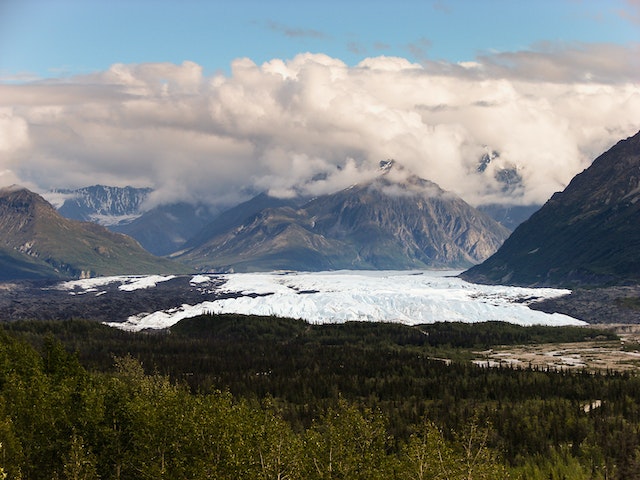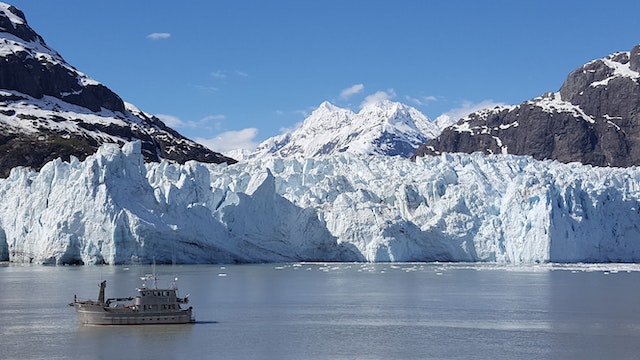Alaska is a vast and rugged state that offers a unique living experience for those who choose to call it home. With its vast expanses of wilderness, abundant wildlife, and dramatic natural beauty, Alaska can be a dream destination for many. However, the state also has its own set of challenges and drawbacks that should be taken into consideration before making the decision to relocate there. In this article, we will explore the pros and cons of living in Alaska to help you decide if it’s the right place for you.

Pros:
- Natural Beauty: Alaska is home to some of the most breathtaking natural landscapes in the world, from its towering mountain ranges to its sprawling glaciers and sparkling fjords and vast expanses of wilderness. Whether you’re an avid hiker, skier or simply a lover of nature, Alaska has something to offer for everyone. You can also find various national parks and reserves such as Denali, Wrangell-St. Elias, and Glacier Bay, which are perfect for outdoor activities, sightseeing and photography.
- Abundant Wildlife: Alaska is home to a wide variety of wildlife, including bears, wolves, moose, caribou, and many species of birds and fish. This makes it a paradise for outdoor enthusiasts and nature lovers.
- Adventure Opportunities: Alaska offers a wide range of outdoor activities, such as fishing, hunting, camping, hiking, and skiing, that are unparalleled anywhere else in the country.
- Low Population Density: Alaska has a low population density, which means that there is plenty of room to spread out and enjoy the state’s natural beauty without feeling crowded.
- Strong Sense of Community: Alaskans are a tight-knit community, and they take care of each other. This can be especially important in remote areas where help may be hard to come by.
- High-Paying Jobs: Many jobs in Alaska pay significantly more than the national average, especially in industries such as oil, mining, and fishing.
- No Sales Tax: Alaska is one of five states in the US with no sales tax, which can be a significant financial benefit for residents. This means that you get to keep more of your money and have more disposable income for things like travel, entertainment or saving for retirement. Additionally, the state also does not have any state income tax, which can help to further reduce the overall cost of living.
- Long Summer Days: Alaska experiences long summer days, with up to 24 hours of daylight in some parts of the state. This can be a great opportunity for outdoor enthusiasts to make the most of the warmer months.
- Northern Lights: Alaska is one of the best places to see the Northern Lights, which can be an awe-inspiring experience.
- Unique Culture: Alaska has a unique culture and history, which can be fascinating to learn about and experience firsthand. From the indigenous cultures of the Alaska Native people to the gold rush history of the late 1800s and the state’s strong ties to the fishing and oil industries, Alaska offers a glimpse into a different way of life. Additionally, the state is also home to a diverse population of people from all over the world, which can make for a rich and interesting cultural experience. You will also find various festivals, events and activities that celebrates the culture and heritage of the state.

Cons:
- Extreme Weather: Alaska is known for its harsh and unpredictable weather, with long, cold winters and short, mild summers. This can be challenging for those who are not accustomed to such conditions.
- High Cost of Living: The cost of living in Alaska is significantly higher than the national average, especially when it comes to necessities such as housing and food.
- Isolation: Alaska is a remote state, and many areas are only accessible by boat or small plane. This can be challenging for those who are used to being close to urban centers and amenities.
- Limited Job Opportunities: While there are high-paying jobs available in certain industries, the overall job market in Alaska can be limited, especially in rural areas.
- Dark Winters: Alaska experiences long, dark winters, with some areas experiencing up to six months of darkness. This can be difficult for those who struggle with seasonal affective disorder (SAD) or who simply dislike the dark.
- High Crime Rate: Alaska has a higher crime rate than the national average, particularly in urban areas such as Anchorage and Fairbanks.
- Limited Medical Care: Access to medical care can be limited in rural areas of Alaska, making it important for residents to have a plan in case of emergency.
- Expensive Travel: Traveling to and from Alaska can be expensive, as the state is not well-connected by roads and flights can be costly. This can make it difficult for residents to visit friends and family or take a vacation.
- Difficulties with Grocery Shopping: Finding a wide variety of fresh foods, especially fruits and vegetables, can be difficult in Alaska, as many items must be flown or shipped in, making them more expensive.
- Pests and Mosquitoes: Alaska is home to a large population of pests and mosquitoes, which can be a nuisance during the warmer months. This can make outdoor activities less enjoyable and can even be a health concern.
Living in Alaska can be a unique and rewarding experience for those who are willing to face its challenges and embrace its natural beauty. While the state offers a wide range of outdoor opportunities, a strong sense of community, and high-paying jobs, it also has its own set of drawbacks, including a high cost of living, extreme weather, and limited job opportunities. It is important to weigh the pros and cons carefully before making the decision to relocate to Alaska. It is also important to visit the state and get a feel for the lifestyle before committing to a move.

